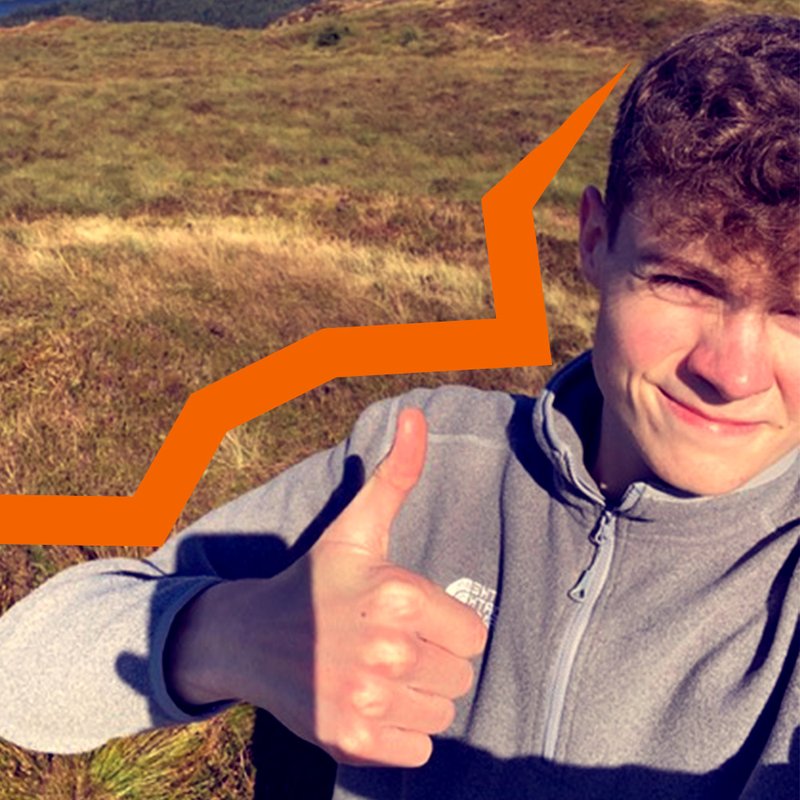“Men absolutely have problems with their body image. A lot of men do. They’re just not open about it.”

19-year old Rory has battled anorexia for the last five years. Despite a hectic university schedule and the many miles between his halls in Scotland and Beat HQ — Rory made time to talk to us about diet culture, body image and his journey to recovery.
At just six years old, Rory remembers asking his mum to put him on a diet.
By age 11, he had come to understand that society values thinness. And when his teacher shared a comparative graph of the class’ weight, Rory struggled with feelings of inadequacy for not being “the best” — in his eyes, meaning “the lightest”.
Why was his worth so intrinsically linked to his weight? “I think there’s a societal view that if you’re heavy, it’s bad,” he says. “So I internalised that, and when I saw that I wasn’t the lightest on the chart, I thought I needed to do something to be number one.”
He describes the ‘slippery slope’ that turned unhelpful thoughts into restrictive eating patterns. And by the age of 15, his changing behaviour and appearance caught his mother’s attention.
She encouraged Rory to see his GP. And she fought his corner when the GP tried to put his symptoms down to picky eating.
Six weeks later, Rory was admitted to hospital by a specialist.
At this stage, he says, he still couldn’t believe he had an eating disorder. “I mean I’d been told by a medical professional that it was just picky eating!” And people at his school had made it clear it wasn’t ‘manly’ to have anorexia.
So, self-conscious of his masculinity, confused about his diagnosis and overwhelmed about being the only boy in the eating disorder unit — Rory’s feelings of inadequacy bubbled to the surface.
Despite the challenges, and with the encouragement and support of his family, Rory still managed to prioritise his recovery and mental health.
He took a year out of school, and had a combination of family therapy, cognitive behavioural therapy, group therapy and exposure therapy. “It was challenging,” he admits, “but it really helped. Especially the collaboration between my parents and my mental health team, because it showed my parents how to coach me through it.”
Three years later, Rory is studying Geography and Statistics at university. He’s in recovery and learning to shut off any intrusive thoughts before he acts upon them.
He’s also got big plans to travel, and has just applied to do a year abroad in Canada or Hong Kong.
While his body image and relationship with food aren’t perfect, Rory’s shown incredible strength and resilience through his experience.
“Now that I’ve come this far, I believe I can do anything I want if I put my mind to it.”
Through therapy and sheer determination to get better, Rory now realises that his value lies outside of his weight. In his kindness, in his intelligence, in his friendships and in his family.
So this Eating Disorders Awareness Week, Rory’s here to show that men are just as vulnerable to mental health struggles and eating disorders. That we all deserve help, and that there’s always hope of recovery.
“You don’t need to lose weight to find worth in yourself. I live such a full life now, and it does feel so positive.”
Any amount you can give, no matter how small, helps us bust toxic stereotypes and reach more men like Rory.